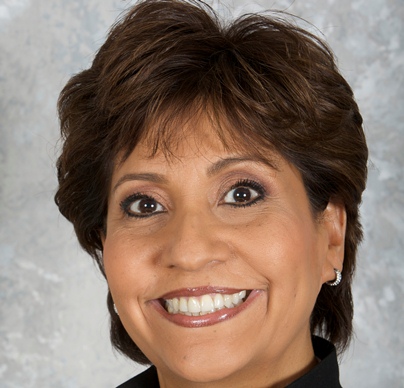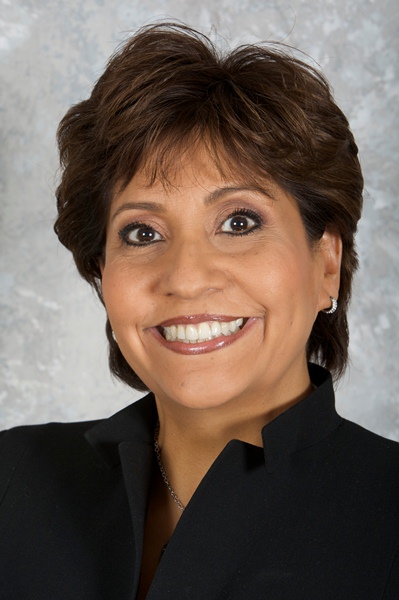National
EXCLUSIVE: National Council of La Raza board unanimously approves same-sex marriage resolution
The unanimous vote took place during June 9 board meeting in Las Vegas

Board members of the country’s largest Latino civil rights organization earlier this month unanimously passed a resolution in support of marriage rights for same-sex couples.
Eric Rodriguez, vice president of public policy for the National Council of La Raza, confirmed to the Blade that the vote took place on June 9 during a previously scheduled board meeting. NCLR did not provide a copy of the resolution, but Rodriguez stressed that there was little opposition to it.
“There was discussion for that period of time, but everyone really strongly that supporting what we had already put out there in terms of our statement was the right thing to do,” he said.
Former NCLR Board Chair Danny Ortega, a Phoenix lawyer whose term ended after the vote, provided broad details of the conversations that he said took place among the 25 board members before the vote.
“We had a discussion about this and clearly some people had more questions than others, but at the end of the discussion it was unanimous,” he said.
The resolution passed less than a month after the National Association for the Advancement of Colored Persons’ Board of Directors endorsed marriage rights for same-sex couples.
President Barack Obama on May 9 publicly backed nuptials for gays and lesbians during a White House interview with ABC News. NCLR President Janet Murguía applauded him for his “historic remarks expressing support for marriage equality” after the network broadcast them.
“The board in essence validated that and said we fully support Janet’s position,” said Rodriguez. “Consistent with that belief they expressed for themselves the belief that marriage equality is consistent with the mission—the civil rights mission—of our organization.”
Murguía also applauded the resolution.
“NCLR has taken a strong stand on marriage equality and our Board of Directors wanted to affirm and support that decision, which I very much appreciate,” she told the Blade. “ That unanimous vote recognizes that marriage equality and LGBT issues are, and need to be, part of NCLR’s core civil rights agenda.”
The Mexican American Legal Defense and Education Fund President Thomas A. Saenz has backed same-sex marriage. His organization has not only represented people with HIV in discrimination cases, but filed amicus briefs in support of lawsuits that challenge California’s Proposition 8 and other states’ prohibitions on nuptials for gays and lesbians.
The Texas chapter of the League of United Latin American Citizens earlier this month also passed a same-sex marriage resolution during their annual convention. LULAC National President Margaret Moran joined Murguía, Saenz and other civil rights leaders who applauded Obama’s public support of nuptials for gays and lesbians.
In NCLR’s case, Ortega stressed to the Blade that the resolution is consistent with what he describes as the organization’s ongoing mission to fight discrimination.
“We thought it was not only the right thing to do, but consistent with our values as an organization,” he added.
The unanimous resolution also reflects growing support of same-sex marriage among Latinos.
An Arcus Foundation-funded survey that NCLR and Social Science Research Solutions released in April shows that 54 percent of Latinos support marriage rights for same-sex couples. Sixty-four percent of respondents said they back civil unions for gays and lesbians. The same poll found that 78 percent of Latinos support the end of “Don’t Ask, Don’t Tell,” while 83 percent of respondents support LGBT-specific employment protections.
“There’s just all this momentum,” said D.C.-based NCLR board member Catherine Pino as she further discussed the same-sex marriage resolution. “For NCLR to do something like this is huge. This is really, really important for our community. The board, the organization realizes that there are many, many Latino LGBT people who are part of our community.”
In spite of this growing support for same-sex marriage, the survey noted that the majority of Latinos who identify themselves as religious remain opposed to nuptials for gays and lesbians. It found that only 43 percent of those who said they are Protestant back marriage rights for same-sex couples. New York state Sen. Ruben Diaz, Sr., who is also a Pentecostal minister, remains among the most prominent Latino opponents of nuptials for gays and lesbians.
Ortega said he expects some Latinos will criticize the resolution, but Pino stressed that the majority of people to whom she has spoken about it are supportive.
“Our community is really evolving,” she said. “We’re coming to a place where we’ve realized that marriage equality is basically a civil rights issue. It doesn’t mean that Latinos want to get married in any of the churches. It’s about equality. And I think that a lot of our Latino brothers and sisters realize that and don’t think that we should be denied that opportunity.”
NCLR plans to formally announce the marriage resolution next month during its annual convention in Las Vegas.
Federal Government
Lambda Legal praises Biden-Harris administration’s finalized Title IX regulations
New rules to take effect Aug. 1

The Biden-Harris administration’s revised Title IX policy “protects LGBTQ+ students from discrimination and other abuse,” Lambda Legal said in a statement praising the U.S. Department of Education’s issuance of the final rule on Friday.
Slated to take effect on Aug. 1, the new regulations constitute an expansion of the 1972 Title IX civil rights law, which prohibits sex-based discrimination in education programs that receive federal funding.
Pursuant to the U.S. Supreme Court’s ruling in the landmark 2020 Bostock v. Clayton County case, the department’s revised policy clarifies that discrimination on the basis of sexual orientation and gender identity constitutes sex-based discrimination as defined under the law.
“These regulations make it crystal clear that everyone can access schools that are safe, welcoming and that respect their rights,” Education Secretary Miguel Cardona said during a call with reporters on Thursday.
While the new rule does not provide guidance on whether schools must allow transgender students to play on sports teams corresponding with their gender identity to comply with Title IX, the question is addressed in a separate rule proposed by the agency in April.
The administration’s new policy also reverses some Trump-era Title IX rules governing how schools must respond to reports of sexual harassment and sexual assault, which were widely seen as imbalanced in favor of the accused.
Jennifer Klein, the director of the White House Gender Policy Council, said during Thursday’s call that the department sought to strike a balance with respect to these issues, “reaffirming our longstanding commitment to fundamental fairness.”
“We applaud the Biden administration’s action to rescind the legally unsound, cruel, and dangerous sexual harassment and assault rule of the previous administration,” Lambda Legal Nonbinary and Transgender Rights Project Director Sasha Buchert said in the group’s statement on Friday.
“Today’s rule instead appropriately underscores that Title IX’s civil rights protections clearly cover LGBTQ+ students, as well as survivors and pregnant and parenting students across race and gender identity,” she said. “Schools must be places where students can learn and thrive free of harassment, discrimination, and other abuse.”
Michigan
Mich. Democrats spar over LGBTQ-inclusive hate crimes law
Lawmakers disagree on just what kind of statute to pass

Michigan could soon become the latest state to pass an LGBTQ-inclusive hate crime law, but the state’s Democratic lawmakers disagree on just what kind of law they should pass.
Currently, Michigan’s Ethnic Intimidation Act only offers limited protections to victims of crime motivated by their “race, color, religion, gender, or national origin.” Bills proposed by Democratic lawmakers expand the list to include “actual or perceived race, color, religion, gender, sexual orientation, gender identity or expression, ethnicity, physical or mental disability, age, national origin, or association or affiliation with any such individuals.”
Democratic Gov. Gretchen Whitmer and Attorney General Dana Nessel have both advocated for a hate crime law, but house and senate Democrats have each passed different hate crimes packages, and Nessel has blasted both as being too weak.
Under the house proposal that passed last year (House Bill 4474), a first offense would be punishable with a $2,000 fine, up to two years in prison, or both. Penalties double for a second offense, and if a gun or other dangerous weapons is involved, the maximum penalty is six years in prison and a fine of $7,500.
But that proposal stalled when it reached the senate, after far-right news outlets and Fox News reported misinformation that the bill only protected LGBTQ people and would make misgendering a trans person a crime. State Rep. Noah Arbit, the bill’s sponsor, was also made the subject of a recall effort, which ultimately failed.
Arbit submitted a new version of the bill (House Bill 5288) that added sections clarifying that misgendering a person, “intentionally or unintentionally” is not a hate crime, although the latest version (House Bill 5400) of the bill omits this language.
That bill has since stalled in a house committee, in part because the Democrats lost their house majority last November, when two Democratic representatives resigned after being elected mayors. The Democrats regained their house majority last night by winning two special elections.
Meanwhile, the senate passed a different package of hate crime bills sponsored by state Sen. Sylvia Santana (Senate Bill 600) in March that includes much lighter sentences, as well as a clause ensuring that misgendering a person is not a hate crime.
Under the senate bill, if the first offense is only a threat, it would be a misdemeanor punishable by one year in prison and up to $1,000 fine. A subsequent offense or first violent hate crime, including stalking, would be a felony that attracts double the punishment.
Multiple calls and emails from the Washington Blade to both Arbit and Santana requesting comment on the bills for this story went unanswered.
The attorney general’s office sent a statement to the Blade supporting stronger hate crime legislation.
“As a career prosecutor, [Nessel] has seen firsthand how the state’s weak Ethnic Intimidation Act (not updated since the late 1980’s) does not allow for meaningful law enforcement and court intervention before threats become violent and deadly, nor does it consider significant bases for bias. It is our hope that the legislature will pass robust, much-needed updates to this statute,” the statement says.
But Nessel, who has herself been the victim of racially motivated threats, has also blasted all of the bills presented by Democrats as not going far enough.
“Two years is nothing … Why not just give them a parking ticket?” Nessel told Bridge Michigan.
Nessel blames a bizarre alliance far-right and far-left forces that have doomed tougher laws.
“You have this confluence of forces on the far right … this insistence that the First Amendment protects this language, or that the Second Amendment protects the ability to possess firearms under almost any and all circumstances,” Nessel said. “But then you also have the far left that argues basically no one should go to jail or prison for any offense ever.”
The legislature did manage to pass an “institutional desecration” law last year that penalizes hate-motivated vandalism to churches, schools, museums, and community centers, and is LGBTQ-inclusive.
According to data from the U.S. Department of Justice, reported hate crime incidents have been skyrocketing, with attacks motivated by sexual orientation surging by 70 percent from 2020 to 2022, the last year for which data is available.
Twenty-two states, D.C., Puerto Rico, and the U.S. Virgin Islands have passed LGBTQ-inclusive hate crime laws. Another 11 states have hate crime laws that include protections for “sexual orientation” but not “gender identity.”
Michigan Democrats have advanced several key LGBTQ rights priorities since they took unified control of the legislature in 2023. A long-stalled comprehensive anti-discrimination law was passed last year, as did a conversion therapy ban. Last month the legislature updated family law to make surrogacy easier for all couples, including same-sex couples.
A bill to ban the “gay panic” defense has passed the state house and was due for a Senate committee hearing on Wednesday.
Indiana
Drag queen announces run for mayor of Ind. city
Branden Blaettne seeking Fort Wayne’s top office

In a Facebook post Tuesday, a local drag personality announced he was running for the office of mayor once held by the late Fort Wayne Mayor Tom Henry, who died last month just a few months into his fifth term.
Henry was recently diagnosed with late-stage stomach cancer and experienced an emergency that landed him in hospice care. He died shortly after.
WPTA, a local television station, reported that Fort Wayne resident Branden Blaettne, whose drag name is Della Licious, confirmed he filed paperwork to be one of the candidates seeking to finish out the fifth term of the late mayor.
Blaettner, who is a community organizer, told WPTA he doesn’t want to “get Fort Wayne back on track,” but rather keep the momentum started by Henry going while giving a platform to the disenfranchised groups in the community. Blaettner said he doesn’t think his local fame as a drag queen will hold him back.
“It’s easy to have a platform when you wear platform heels,” Blaettner told WPTA. “The status quo has left a lot of people out in the cold — both figuratively and literally,” Blaettner added.

The Indiana Capital Chronicle reported that state Rep. Phil GiaQuinta, who has led the Indiana House Democratic caucus since 2018, has added his name to a growing list of Fort Wayne politicos who want to be the city’s next mayor. A caucus of precinct committee persons will choose the new mayor.
According to the Fort Wayne Journal Gazette, the deadline for residents to file candidacy was 10:30 a.m. on Wednesday. A town hall with the candidates is scheduled for 6 p.m. on Thursday at Franklin School Park. The caucus is set for 10:30 a.m. on April 20 at the Lincoln Financial Event Center at Parkview Field.
At least six candidates so far have announced they will run in the caucus. They include Branden Blaettne, GiaQuinta, City Councilwoman Michelle Chambers, City Councilwoman Sharon Tucker, former city- and county-council candidate Palermo Galindo, and 2023 Democratic primary mayoral candidate Jorge Fernandez.
-

 District of Columbia2 days ago
District of Columbia2 days agoReenactment of first gay rights picket at White House draws interest of tourists
-

 District of Columbia2 days ago
District of Columbia2 days agoNew D.C. LGBTQ+ bar Crush set to open April 19
-

 Arizona2 days ago
Arizona2 days agoAriz. governor vetoes anti-transgender, Ten Commandments bill
-

 Africa4 days ago
Africa4 days agoUgandan activists appeal ruling that upheld Anti-Homosexuality Act













